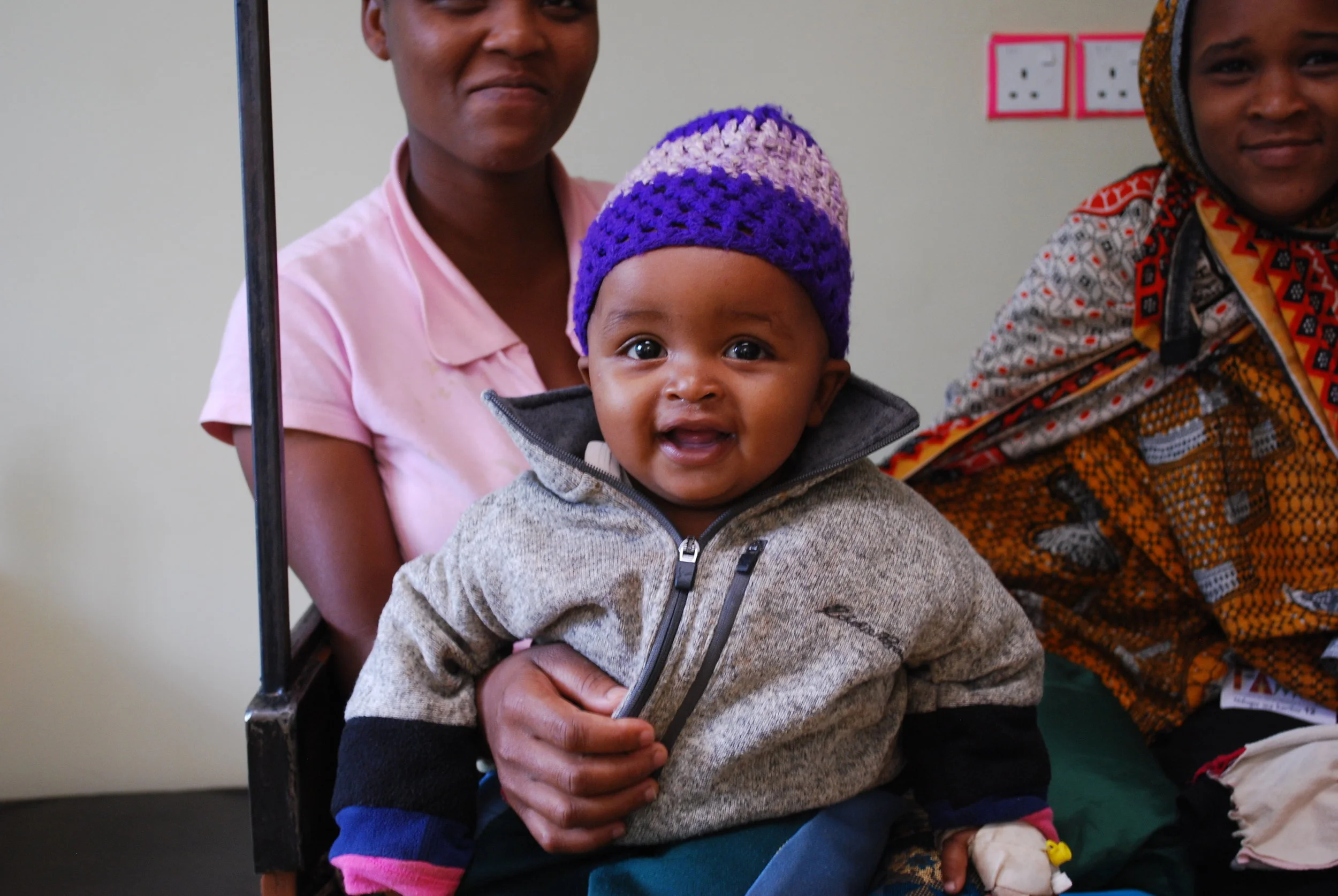A Story of Hope "Tumaini"
By volunteer pediatrician, Dr. Jonas Ekwall
During my last day at FAME, I was asked: “What will you remember the most from your time here?” I thought to myself: I will remember the dedicated staff, their skills and the amazing work they do. I will think of all the things I’ve learned, the friends I’ve made, happy memories and laughs, but also a few sad ones. I will carry all of that within me for a long time – and it makes me smile when I, now on my way back to the cold north, let my mind wander through the memories of the past month. For example, there is the big, lovely smile of Dr. Assenga on the morning of May 4th; a beautiful picture in time that will stay with me.
Some stories will just stay in your mind, and the story of Tumaini is one of those. This story not only showed the immense strength and stamina of a little baby boy, but also the fantastic medical and nursing skills of the FAME staff.
On the evening of May 3rd, a previously healthy 8-month-old boy named Tumaini, from the outskirts of the Karatu district, was referred to FAME with his mother. Three days earlier, he had started to have a cough and fever. The family managed at home during the first couple of days. Yet, on the third day the mother took Tumaini to a nearby health center, where he was admitted and began treatment for pneumonia. He rapidly got worse and, after a few hours, he was in such bad shape that he was transferred to FAME.
At admission, Tumaini’s mother said that his breathing had gotten worse during the day; that during the last three hours before coming to FAME, he had been unconscious and had twitches or seizure-like movements. When the ambulance arrived after a challenging journey, he was unconscious and had severe respiratory distress, as well as difficulty breathing and a severely low oxygen saturation of 64%. Tumaini was immediately resuscitated by FAME’s night shift staff and began to improve in oxygenation and consciousness. He was then admitted with severe obstructive bronchopneumonia. During late evening his condition slightly improved, but he was still in severe respiratory distress and not fully conscious or responsive. With Tumaini in this state, and at this late hour, a referral was not an option. It would have been too dangerous. To hopefully create some positive pressure, his oxygen delivery was shifted to high flow nasal canicula and he received iv hydrocortisone and repeated doses of nebulized adrenaline and salbutamol. During the night, the nursing staff worked like an ICU staff, watching the boy, adjusting the nasal prongs, and positioning and repositioning him and his mother to create the most optimal way of breathing possible.
At a late hour, I left the ward, but it was hard to fall asleep while thinking of the baby boy up in ward 1. When I opened my eyes a few hours later, the first thing that struck my mind was: “Did he make it through the night?” I quickly got dressed and went up to the hospital. Even before arriving, I spotted Dr. Assenga, the night shift doctor, walking slowly through the ward corridor. I was still not fully awake, but I could clearly see that he was looking at me with a big smile on his face. Then he shouted out: “The boy is breastfeeding and he is a bit angry. He did it!” We laughed with joy and hugged and went in to join the night shift nurses.
Tumaini sat in the bed, his breathing and the color of his cheeks significantly better. I couldn’t believe my eyes, but there he sat in the bed laughing at us.
In Swahili Tumaini means “hope”. I think Tumaini’s remarkable story captures the essence of how I experienced my time at FAME. It captures the fantastic staff, their dedication, their belief in what they do and their constant wish to improve their skills and knowledge. Thanks to them, Tumaini went home happy and laughing with his mother seven days later. This story reminds me of what an old pediatric professor back home in Sweden once said to me: “Good health care is not defined by the sign on the front door of the hospital, it’s defined by the people working behind that door.”

